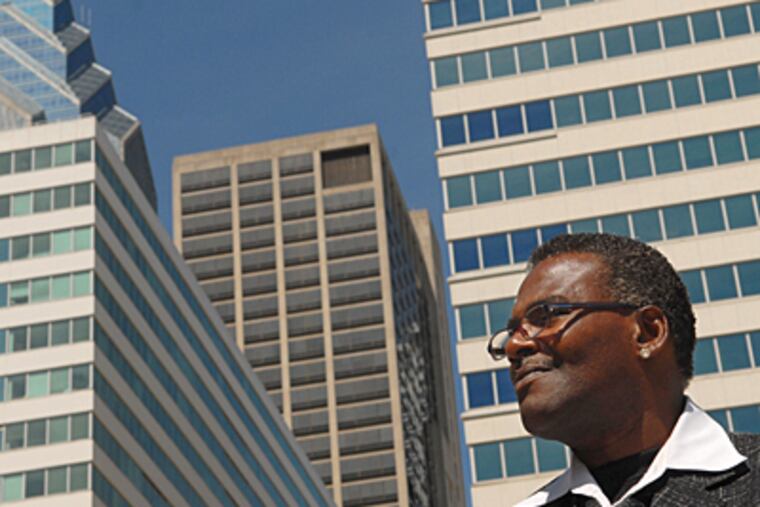Phila. mayor unveils major plan to aid the homeless
Mayor Nutter announced a plan this morning that would add 700 housing units for homeless people by combining the resources of the Philadelphia Housing Authority and the city.

Mayor Nutter announced a plan this morning that would add 700 housing units for homeless people by combining the resources of the Philadelphia Housing Authority and the city.
The mayor spoke at a news conference on Dilworth Plaza, a site on the west side of City Hall that has become known as the place where homeless individuals - especially those with chronic emotional or drug and alcohol problems - camp out.
Joined by acting DHS Commissioner Arthur Evans, PHA executive director Carl Greene and Don Schwarz, deputy mayor for health and opportunity, Nutter characterized the announcement as a "very proud moment."
He added, "There is an urgent, immediate need for change."
Homeless advocates had praise for the plan.
"This is a great first step," said Sister Mary Scullion, of Project H.O.M.E. "It shows a dramatic commitment on the city's part."
And Gloria Guard, head of the People's Emergency Center, declared herself "thrilled" with the Nutter announcement, adding, "It's the first time a mayor has put money on the table [to fight homelessness] this early in his administration.
The PHA's involvement is significant because the authority has a wait list of 48,000 people - mostly the working poor - who are seeking subsidized housing. Unlike cities such as New York, which have made use of federally subsidized housing to care for the homeless, PHA's wait list has made that option almost impossible.
The plan would call for the creation of 300 units for couples and families, 200 for single individuals and 125 for the chronically homeless - those who live on the street and who are most often encountered by those who visit or work in the city. In addition, the plan includes 75 safe-haven beds for those with acute addictions and substance abuse.
In February, The Inquirer chronicled the problem of homelessness in Philadelphia and what most agreed was a steadily rising population of homeless people. Last summer's street census hit 621 - the largest number in the decade since the high of more than 800 that spurred city officials to tackle the problem of homelessness. Another 3,839 are in city and private shelters.
The city then spent $6 million, added teams of outreach workers and about 300 units of special, long-term housing for people with mental illness and addictions living on the street. The campaign worked and the population of homeless on the street dropped to below 200 in 2000.
But The Inquirer's series found that a stall in the creation of new housing because of community opposition, a lack of affordable housing throughout the city, a balky economy that was heavily felt by the working poor and a lack of outpatient and support services for people with mental illness and/or drug and alcohol addiction - 85 percent of those living on the street - had pushed the number of homeless people beyond the city's capacity to deal with.
Since taking office in January, Nutter has been reviewing the city's resources for dealing with homelessness and for a way to convince the city's neighborhoods to accept a share of homeless facilities to reduce the mass encampments that have developed at Dilworth Plaza, the SEPTA subway concourses in Center City and LOVE Park across 15th Street at the base of the Benjamin Franklin Parkway.
In an interview shortly before taking office Nutter said he wanted an analysis of the homeless population - those on the streets and in shelters - and a "top-to-bottom" review of city contracts with nonprofit agencies providing shelter and other homeless services.
"We have some of the best advocates and organizations in the country," Nutter said. "Homelessness is clearly something we can actually do something about."